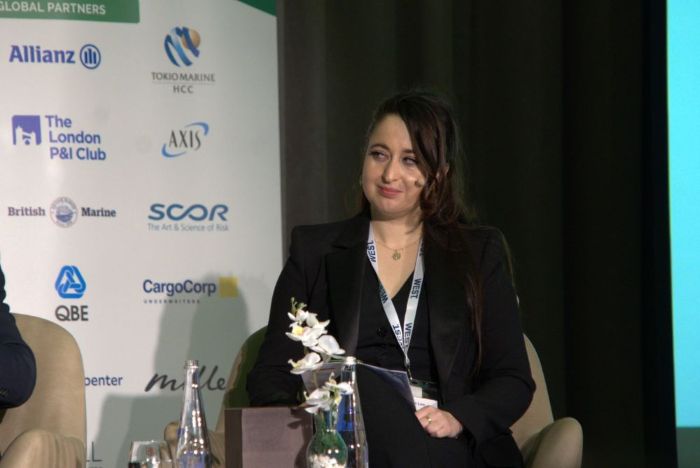At the Marine Insurance Conference Middle East, held in Dubai on 9 October 2025, Anna Lee, Director of Strategy at LGA Assistance, participated a session titled “When Two Tankers Collide: Who Pays the Costs?”.
During the discussion, she shared detailed insights into LGA Assistance’s coordinated response and management efforts following the collision off the coast of Fujairah between the VLCC MT Gulf Star and bulk carrier MV Eastern Horizon. Her presentation highlighted how LGA integrated medical support, psychological care, cost auditing, and legal alignment to ensure effective crisis management, crew welfare, and financial cost reduction throughout the incident.
Immediate Response: Crew Evacuation
“In the immediate aftermath of the collision between MT Gulf Star and MV Eastern Horizon, our first priority was the crew’s safety and medical stabilization”, said Anna Lee, “It was a relief that all crew members were successfully evacuated and transferred to Fujairah Hospital. From the very start, we coordinated closely with emergency medical services to ensure that pre-hospitalized crew members received proper treatment”.
At the same time, LGA launched psychological screening for the entire crew, because an incident like this is not only a physical trauma, it deeply affects mental health. Many people forget that aspect, yet for LGA it’s a core duty of care. “Our vision is to bring a framework where medical response and psychological support go hand in hand from day one”.
Cost Management and Legal Protection
Anna further stated that During the first week after the incident, “we began daily medical monitoring of all hospitalized crew with our medical experts, validating treatment plans and controlling medical costs. We implemented cost audits early, because from day one we knew we were facing significant expenditures, estimates ranged between eight and nine million dollars, including intensive care, trauma treatment, and follow-up rehabilitation. For example, ICU costs alone ranged from $1,400 to $4,000 per day, and severe trauma cases reached $55,000 to $88,000 per person”.
Alongside this, LGA supported crew members who remained under investigation by UAE authorities. They faced stress, uncertainty, and restrictions on leaving the UAE. So our team arranged psychological experts to help manage anxiety and post-incident stress, while ensuring they were prepared for interviews with flag-state and safety investigators.
“What makes our approach different is that we don’t just handle the bills, we align medical, legal, and financial frameworks from the very beginning to ensure care is delivered responsibly and transparently”, said Anna Lee.
Linking Medical and Legal Dimensions
At this stage, LGA is merging its medical documentation with the legal defense process. Crew members who develop post-traumatic stress disorder (PTSD) or other psychological conditions may later pursue long-term compensation claims.That’s why LGA is providing comprehensive medical dossiers to the legal teams. These records will serve as expert testimony before UAE courts, helping distinguish between PTSD and short-term adjustment disorders, a distinction that matters not only medically but also financially.
According to Anna, “By introducing early psychological intervention and structured documentation, we can significantly reduce future compensation costs, sometimes by up to 50%. This is how we turn immediate care into a proactive risk-management strategy.”

Final Reflection
Reflecting on the broader lessons from the Fujairah incident, Anna Lee noted that “when a collision happens, it’s easy to focus on hull damage, pollution cleanup, or legal liability. But behind those figures stand people, injured, traumatized, and uncertain about their future. Our role is to make sure that the human and financial dimensions of such incidents are managed with precision, compassion, and accountability. By implementing early intervention, which we already arranged, and carefully managing the course of recovery, we can not only support crew members effectively but also reduce potential future claims by up to 50%. That’s the essence of strategic assistance in marine insurance today.”






